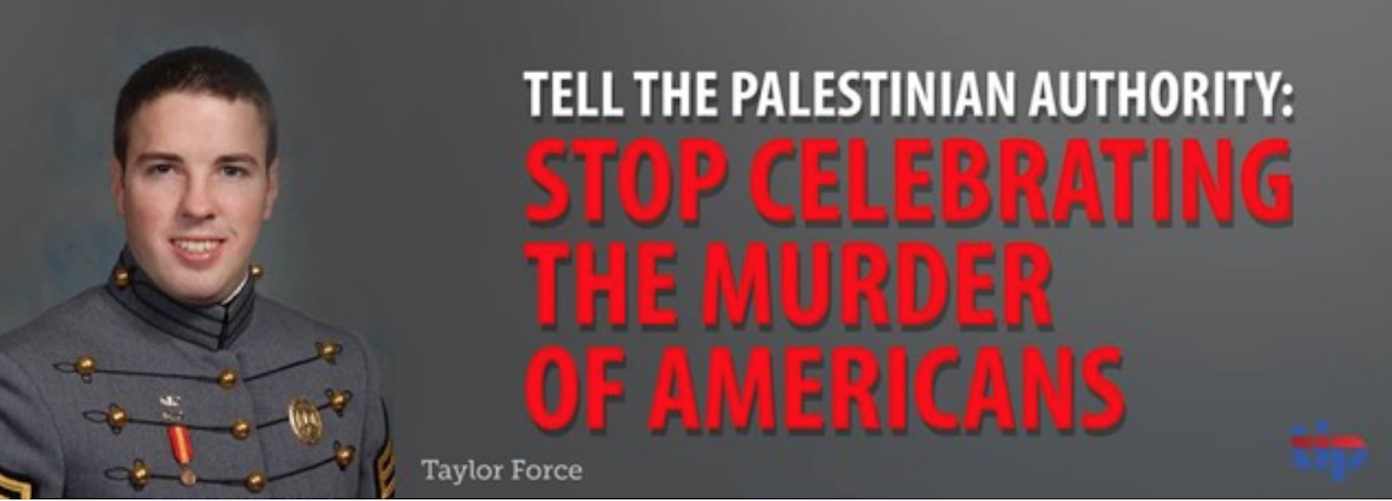PMW: Dutch MPs call to cut PA funding, following PMW and terror survivor’s lectures
Palestinian Media Watch director Itamar Marcus spoke to members of Dutch Parliament yesterday documenting the many ways in which the Palestinian Authority in itself is the fundamental impediment to peace. Marcus documented PA’s vicious Antisemitism, its indoctrination of children to hatred and terror, as well as the PA's continued monthly payments to terrorist prisoners and families of killed terrorists.
Members of Dutch Parliament expressed their condemnation of these PA activities and discussed steps that should be taken to stop the funding by their own government.
MP Kees van der Staaij: “I think it’s also important to have now further steps [by the Netherlands] and to stop each payment to Palestinians as long as there is no real progress.”
[Parliament of The Netherlands, Nov. 7, 2018]
The MPs were also addressed by Kay Wilson, a British-born Israeli tour guide who survived a brutal terror attack in 2010. Kay was bound, gagged, and stabbed 13 times with a machete and left for dead, while her Christian friend, Kristine Luken, was murdered.
Kay Wilson: “I watched in horror as a Palestinian terrorist butchered my Christian friend to death right in front of me only because he thought she was a Jew. A second Palestinian terrorist stabbed me 13 times with his machete, snapping my ribs and shattered more than thirty bones. The PA’s rewarding of those two killers and all the other thousands of terrorists in prison is both morally abhorrent and incomprehensible.”
[Parliament of The Netherlands, Nov. 7, 2018]
MEMRI: Contrasting Reactions In Arab World To Gulf States' Harbingers Of Normalization With Israel
Three events in three Arab Gulf states in the past week have reflected these countries' process of normalization with Israel. On October 26, 2018, Israeli Prime Minister Benjamin Netanyahu visited Oman, accompanied by the head of the Mossad; the visit was extensively covered by Omani media. Omani Foreign Minister Yusuf bin Alawi declared on several occasions that Israel is a Middle Eastern country that must be accepted as such.MEMRI: Kuwaiti Journalist Calls On Arabs To Change Their Attitude Towards Minorities
On October 25, Israeli Culture and Sport Minister Miri Regev arrived in Abu Dhabi to join the Israeli judo team participating in the Abu Dhabi Grand Slam; while Israelis had previously participated in this competition, it was the first time their national symbols were allowed to be displayed. The Israeli anthem was even played twice when Israeli judokas won two gold medals. During Minister Regev's stay in the country, she visited the Sheikh Zayed mosque, named for the founder of the UAE.
The previous week, an Israeli gymnastics team had competed in the 48th Artistic Gymnastics World Championships in Doha, Qatar, under the Israeli national flag.
Prime Minister Netanyahu's visit to Oman took place a few days after a similar visit by Palestinian Authority President Mahmoud 'Abbas. Omani Foreign Minister bin Alawi stated that 'Netanyahu's visit was aimed at presenting the Israelis with ideas to help renew the political process with the Palestinians, but stressed that his country had no intention of serving as a mediator, since that role was reserved for the U.S. Following Netanyahu's Oman visit, the Omanis sent several messages to 'Abbas about it. On October 28, Omani Sultan Qaboos' envoy Salim bin Habib Al-'Omeiri arrived in Ramallah with a letter for 'Abbas, and three days later, on October 31, 'Abbas met with the Omani foreign minister, who conveyed to him a "direct message" from the sultan. The London-based Saudi daily Al-Sharq Al-Awsat reported that Oman wanted to play an important role in settling both the Palestinian-U.S. and the Palestinian-Israeli disputes.[1]
Additionally, it has been assessed that Netanyahu's visit also concerned the issue of Iran. The Omani daily Oman reported that Netanyahu and Sultan Qaboos discussed kickstarting the peace process and also "several issues of shared interest that serve security and stability in the region,"[2] perhaps hinting at discussions on that subject.
n a column titled "The Christian Here and the Muslim Over There" in the Kuwaiti daily Al-Qabas, liberal journalist Ahmad Al-Sarraf called for greater tolerance towards religious minorities in the Arab world. He recommended to learn from countries like Senegal and Ethiopia, in which members of religious minorities served as heads of state, and from Europe and America, where Muslims serve in prominent positions.
The following are translated excerpts from his article:[1]
"The following text is attributed to the late Sudanese MP Muhammad Ibrahim [Nugud]: 'If a Muslim governs me, this will not guarantee me a place in Paradise; if an infidel governs me, he will not keep me out of Paradise, and if I am governed by one who guarantees employment, freedom and self-respect for me and my children, I will stand up to show him my respect and appreciation.
"'The issue of [attaining] Paradise depends upon my faith and my actions. [So] stop fighting for power in the name of religion, believing that this will lead you to Paradise. The government's job is not to get people into Paradise, but to provide them with a Paradise here on earth, which may help them attain the heavenly Paradise.'
"Reading this text, I remembered the great African poet Leopold Senghor, who served as President of Senegal for 20 years, from October 1960, when [Senegal received its] independence [from France] until 1980, at which time he voluntarily stepped down in favor of his successor, President Abdou Diouf. Senghor is widely regarded as a world-renowned writer and one of the most important African thinkers of the 20th century. Although 94 percent of the Senegalese are Muslim and only 5 percent are Christian, they elected the Christian Leopold Senghor (b. 1906) to be their president, and reelected him several times before he stepped down of his own accord, and died in France in 2001.



















































